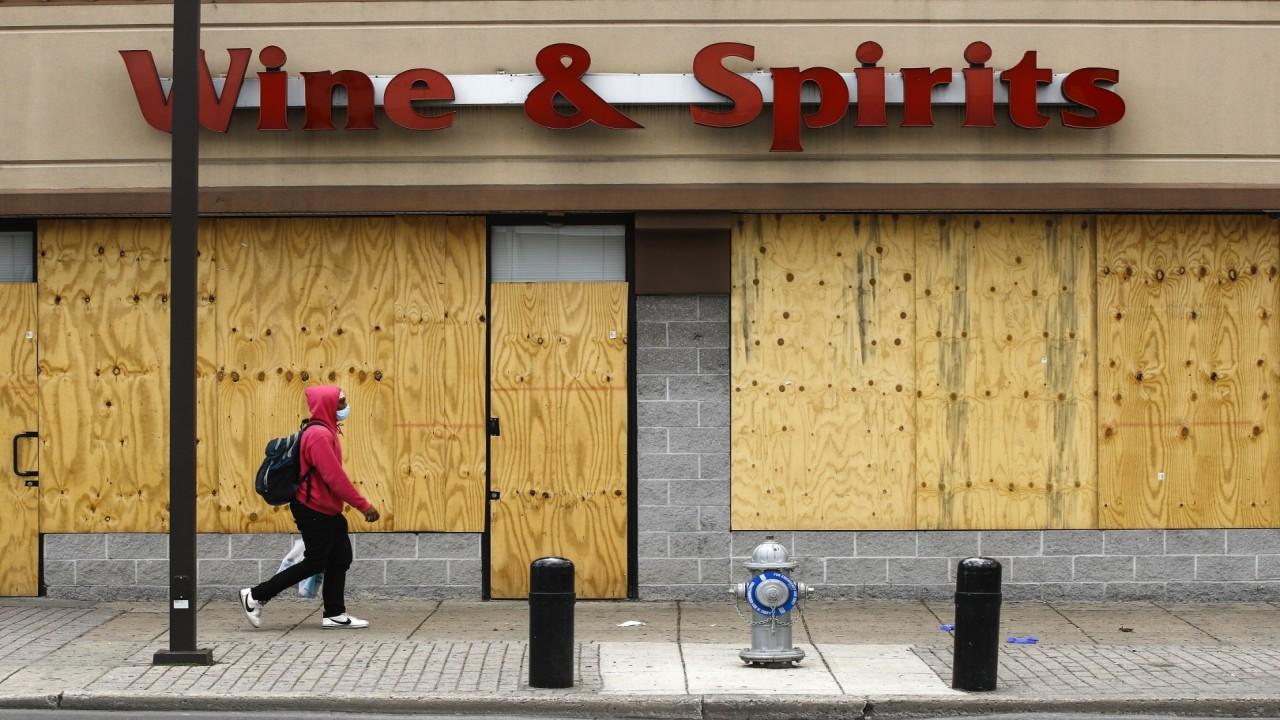During coronavirus, small businesses face new challenges even as states reopen
The cost of implementing new policies to protect customers and staff from coronavirus may be the nail in the coffin for some business owners
Get all the latest news on coronavirus and more delivered daily to your inbox. Sign up here.
As states throughout the country begin to plan timelines for reopening their economies, guidelines and restrictions businesses could be asked to follow may drag out financial pain.
Businesses in some states, like Georgia, have begun the process of reopening. However, it is not business as usual. Owners are being asked to implement social distancing guidelines, provide personal protective equipment to their workers and to provide extra time off for individuals should they need to self-isolate.
These measures are designed to protect both staff and customers.
WILL CORONAVIRUS CRISIS SPARK FRESH EXODUS FROM HIGH-TAX STATES?
However, unlike large corporations, small businesses may not have the resources or technology to adapt to the new policies, Erik Rosenstrauch, president and CEO of Fuel Partnerships told FOX Business.
The first challenge will be acclimating to consumer preferences now that even more people have begun shopping online, ordering curbside pickup and doing things like touring homes virtually.
“Can your small mom and pop do that? Do they have the technology to do that? I fear that they don’t,” Rosenstrauch said.
Small mom and pop nail salons and barbershops, for example, may not currently have the technology to allow customers to book appointments online – which will likely be necessary due to pent-up demand and social distancing guidelines limiting the number of people permitted in a space.
And then there is the cost of providing personal protection equipment like masks, gloves and Plexiglas shields to workers. Restaurants may even be asked to consider disposable menus and utensils.
While those expenses may make up a small percentage of the budget of a large store like Walmart, it could quickly eat up a big portion of a small business’s budget – especially if it has been losing revenue for the six to eight weeks during which many companies have been closed.
Anecdotally, Rosenstrauch noted that an individual in the service industry said providing shields and masks, as well as reducing and changing worker shifts, will increase company costs by 15 percent.
FAMED ECONOMIST WRITES $100B CORONAVIRUS PLAN TO TEST ALL AMERICANS
Further, businesses will be missing out on revenue due to the sheer fact that they will not be allowed to fill their establishments.
“You might just have some business owners saying … ‘I’m just not going to reopen,’” Rosenstrauch said.
The Centers for Disease Prevention and Control sent a list of draft recommendations to protect the public to the White House, which included items like asking restaurants to provide disposable utensils, installing sneeze guards at cash registers and nixing buffets.
Ultimately, states and localities will be responsible for determining their own guidance. However, should businesses be unwilling – or unable – to comply with the most rigorous health and safety standards, it remains to be seen how keen customers will be to return to the establishments.
“Safety is going to be important to every shopper at this point,” Rosenstrauch said. “Smaller companies are going to have to do this.”
GET FOX BUSINESS ON THE GO BY CLICKING HERE




















